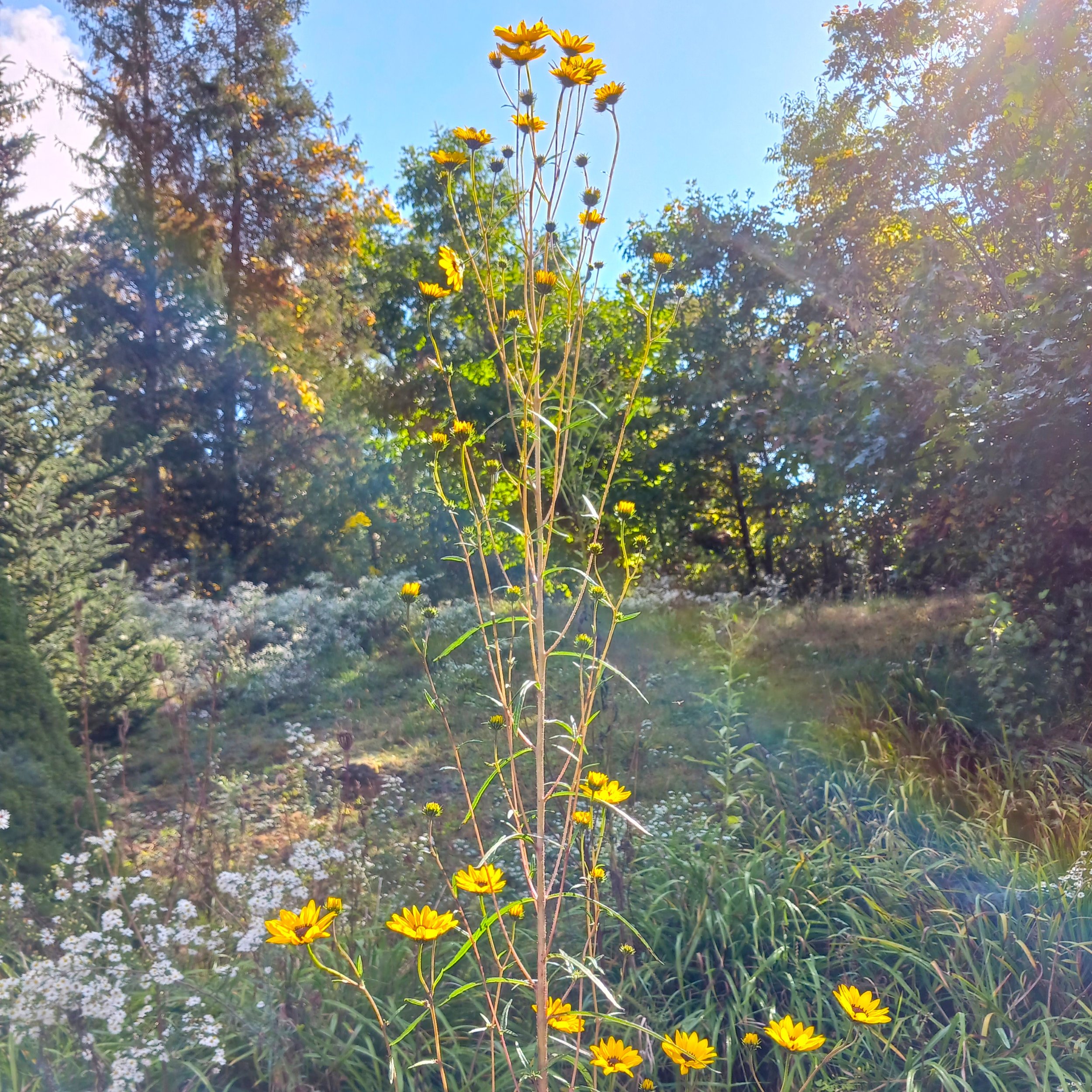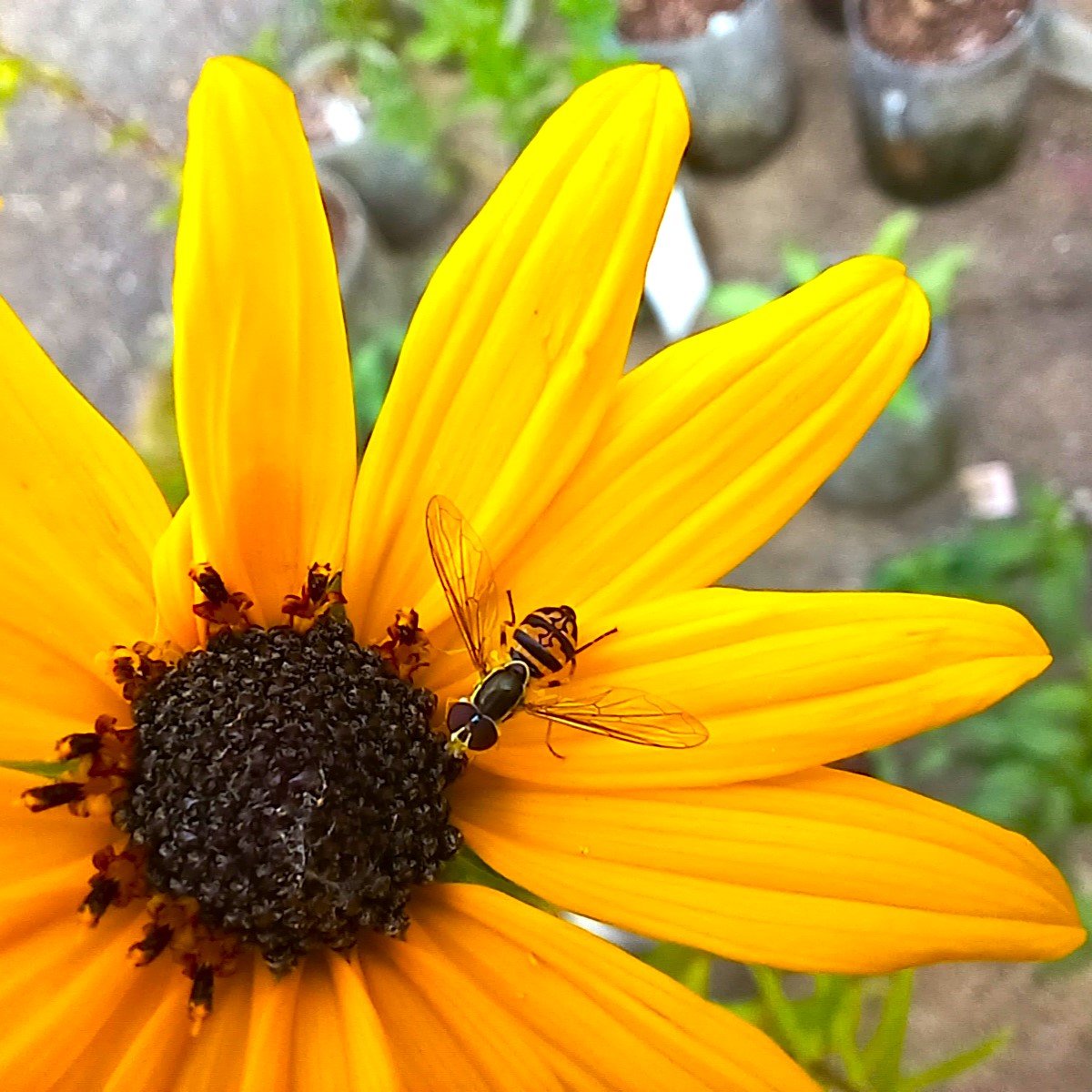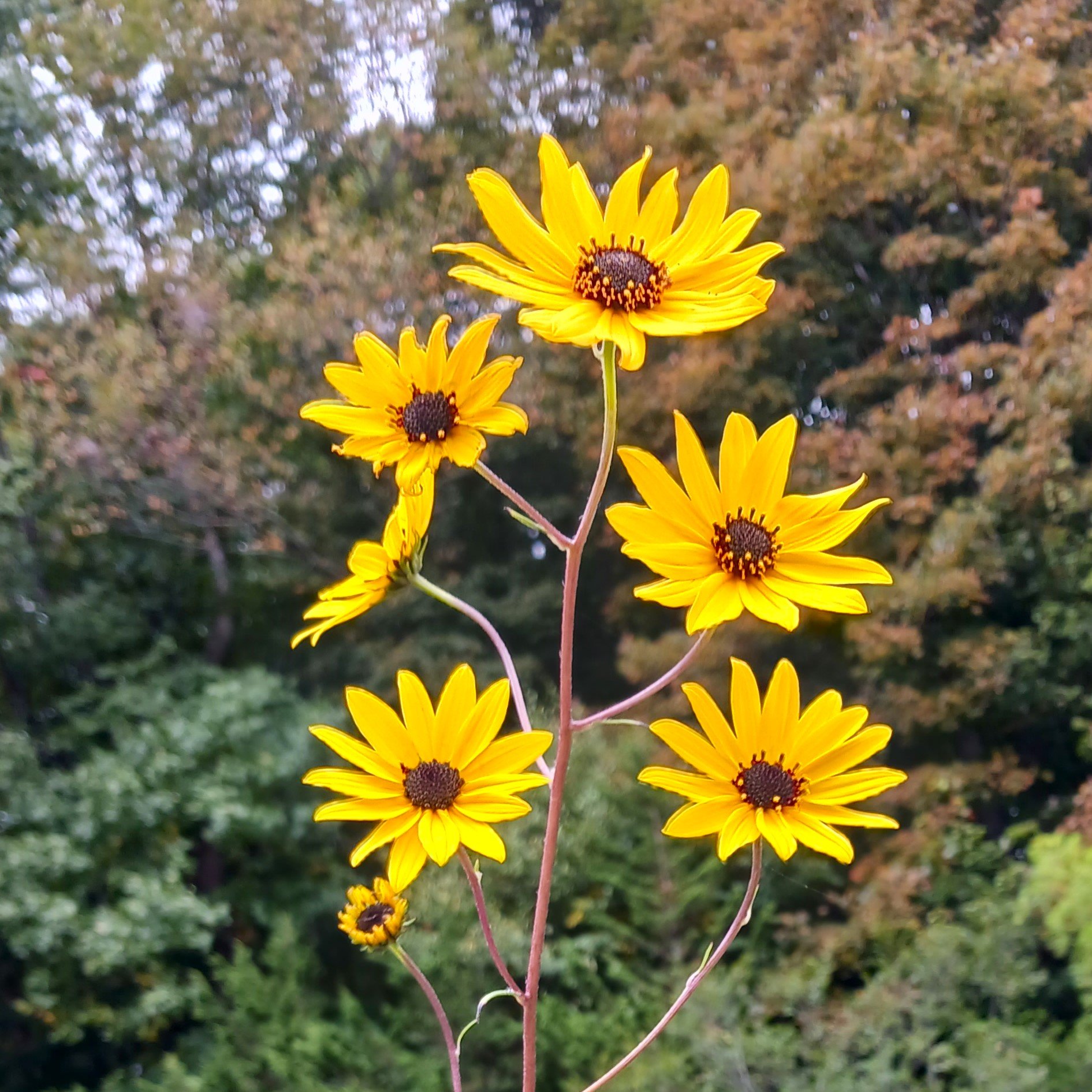Helianthus angustifolius (Narrowleaf Sunflower)
Helianthus angustifolius is one of our tallest native sunflowers, ideal for home gardens. It provides a colorful display of blooms in fall, vital for pollinators. Leave the seeds out in winter to attract birds with a nutritious food source!
Helianthus angustifolius is fantastic plant for bugs that works well in many gardens. A perennial sunflower, it needs at least 2+ hours of sun, the more the better. Its narrow leaves are unique amongst sunflowers, but it is also called “swamp sunflower” since it grows best in soils that are well draining to often wet, including poor quality soils or soils exposed to salt. Unlike other sunflowers, Narrowleaf Sunflower has a fibrous root system and cannot spread beyond a 3-4’ patch. It can reseed, but the seeds are often eaten by birds. The most striking feature of Narrowleaf Sunflower is its height, reaching up to 8’ in delicate branching stems covered in 2-3” flowers. The flowers are yellow with dark centers alike the iconic annual sunflowers, and while they tend to wait until September to start blooming, they can continue blooming until first frost. ne advantage this brings is providing an easy to access food source for late season pollinators like bumblebees and migrating Monarch butterflies.
Our native sunflowers are part of the genus Helianthus, and despite their importance as an ecological keystone species, they are surprisingly rare throughout what was once a prolific range. Unlike annual sunflowers grown as crops, perennial sunflowers establish important linkages by creating known sources of food that dependent species can reliably find over generations. This is one reason why so many insects have specialized exclusively in feeding on sunflowers, and conversely birds know these are guaranteed larders for feeding their young. Colonies of perennial sunflowers can persist in the right conditions, allowing these ecological links to reinforce year after year. These wildflowers have important benefits to a range of species, including dozens of specialist bees which feed on a narrow range of flowers, and caterpillars for a number of moths, some of which only feed on sunflowers. In addition to eating insects, birds will also feed on the seeds later in the early winter, including finches, sparrows, and bobwhite quail. Finally, sunflowers provide food to a panoply of other insect species, making them an important link to native habitats beyond just birds and bees. Despite this, we have never seen this as a problem, since Helianthus grow so abundantly in both wet and dry conditions. Really, sunflowers are a must for every garden.
Pollinators: bumblebees, long-horned bees, leafcutter bees, halictid bees, honey bees, butterflies, moths, syrphid flies, wasps, soldier beetles
Host Plant for Butterflies/Moths: 60+ species of Lepidoptera in our region, including the Gorgone Checkerspot butterfly (Chlosyne gorgone) and Silvery Checkerspot butterfly (Chlosyne nycteis)
Dependent Species: 32 species of oligolectic bees, 1 species of monolectic bee - Sunflower Miner Bee (Andrena helianthii); Lepidoptera species - Banded Sunflower Moth (Cochylichroa hospes), Frothy Moth (Plagiomimicus spumosum), Maritime Sunflower Borer (Papaipema maritima), Sunflower Borer Moth (Papaipema necopina), Sunflower Bud Moth (Suleima helianthana), Yellow Sunflower Moth (Stiria rugifrons), Eucosma sombreana, Teladoma helianthi
Wildlife Value: Bobwhite quail, Songbirds, Thrushes, Wood Warblers
Deer Resistance: Good
Native Region: Appalachian Mountains, Piedmont, Coastal Plain
Seed Origin: USA, nursery seed collected in North Carolina
USDA Zones: 5-9
States found in our region: AL, DE, GA, KY, MD, NC, PA, SC, TN, VA
Other states found: AR, FL, IL, IN, LA, MS, MO, NJ, NY, OK, TX


























